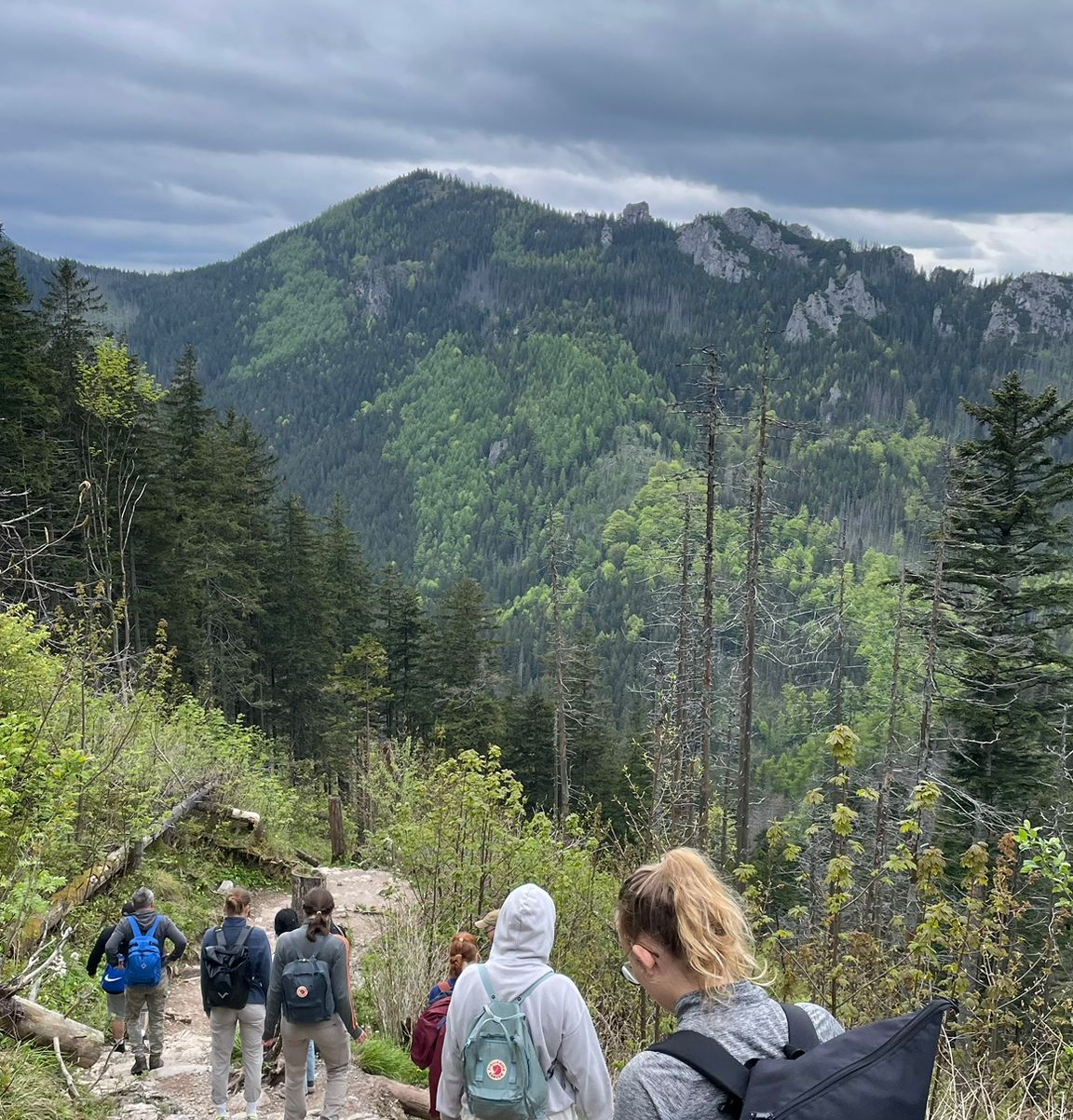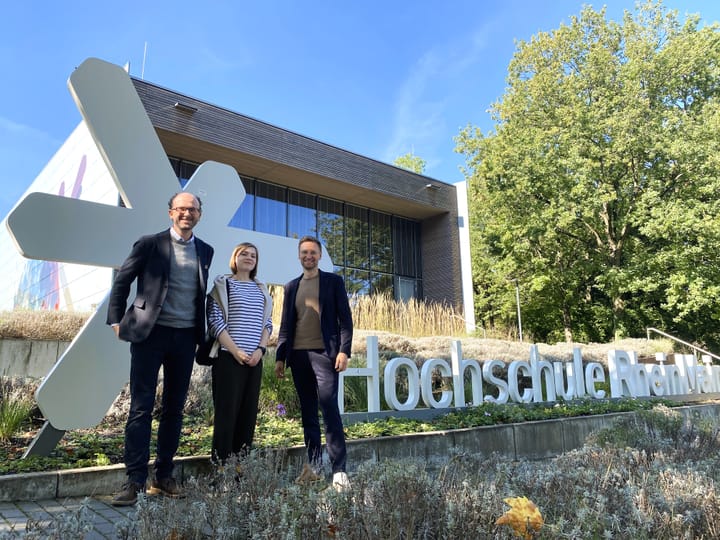As part of the ProBioTIC project (Promoting Biodiversity through Transdisciplinary Learning Interventions in the Carpathians), Leuphana University has developed a seminar focused on transdisciplinary outreach for this biodiverse region. The class divided themselves into four groups, each developing a project focused on one of the following topics:
- Human-nature interactions, particularly with regards to coexistence with large carnivores;
- Sustainable consumption, examining the potential of geographical indication labels (similar to AOC in France or DOC in Italy) for traditional cheese production and pastoral practices in the region;
- Eco-tourism development;
- Citizen science initiatives.
From 28-31 May 2025, seven seminar participants joined the field excursion to southern Poland. The purpose of the trip was to offer students the opportunity to experience the region's ecological and cultural richness firsthand and establish meaningful connections with local stakeholders, ultimately informing their academic research.
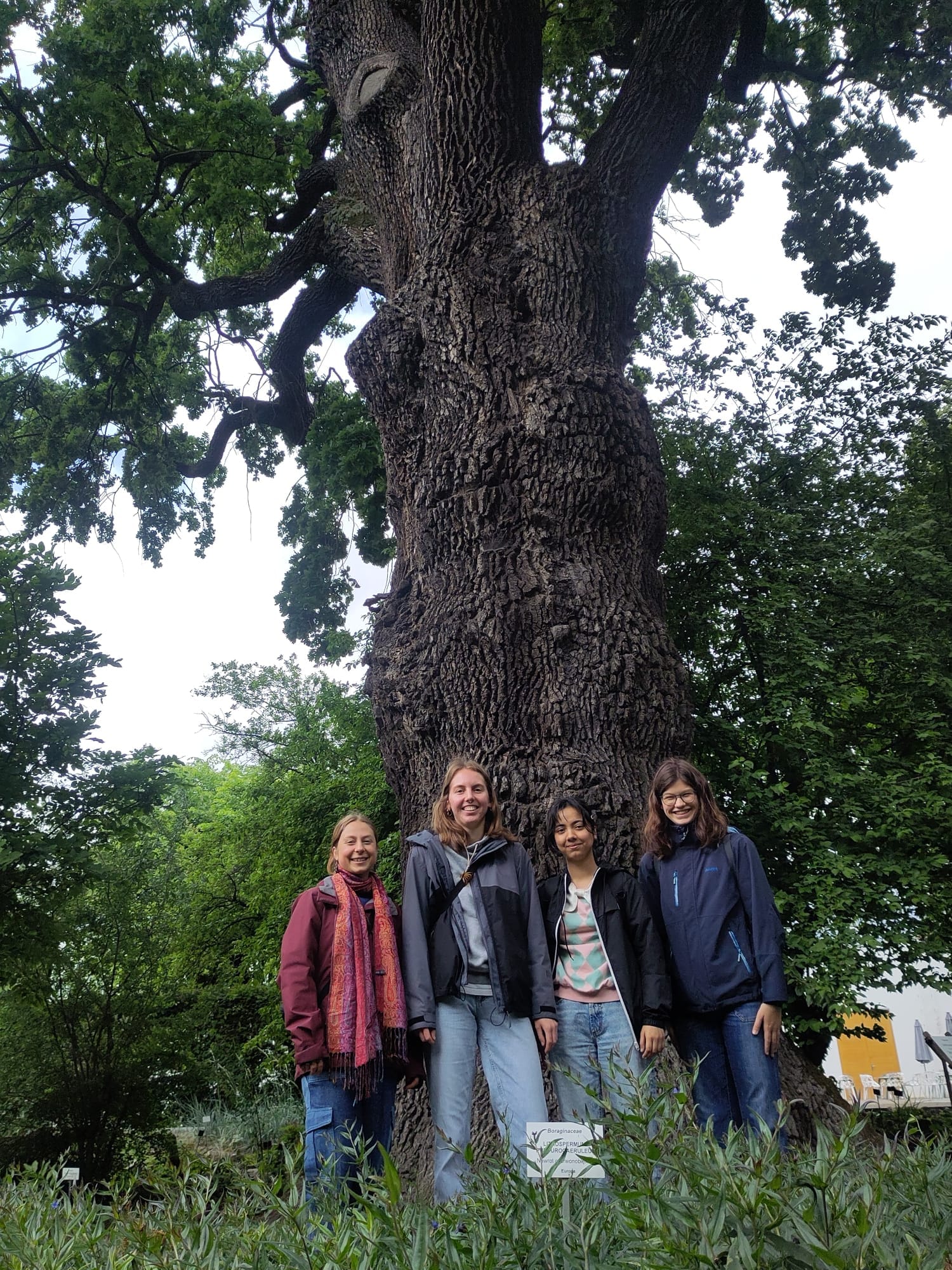
The programme began in Kraków, where students visited the Botanic Garden of the Jagiellonian University, Poland's oldest university botanical garden, founded in 1783. Beyond its impressive collection of alpine and Carpathian flora, the garden offered insight into centuries of botanical research and conservation. A highlight of the visit was the monumental 200-year-old "Jagiellonian Oak" .
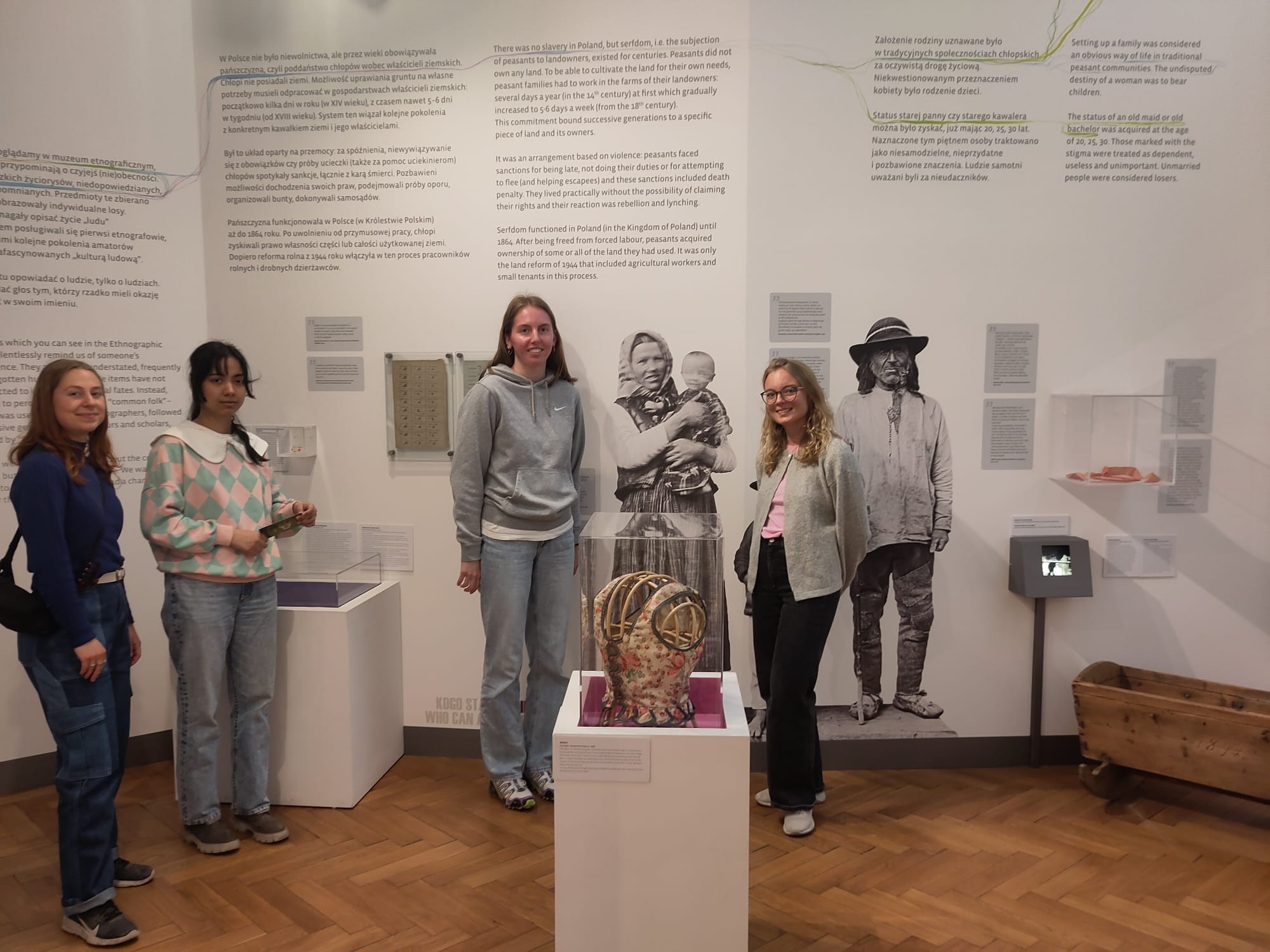
Later, the students visited the Seweryn Udziela Ethnographic Museum of Kraków, where exhibits on household tools, traditional dress, and farming techniques provided insight into rural life in the Carpathians. The group noted striking similarities between Polish and German rural practices – such as linen production and home heating methods – highlighting the transnational relevance of indigenous knowledge systems.
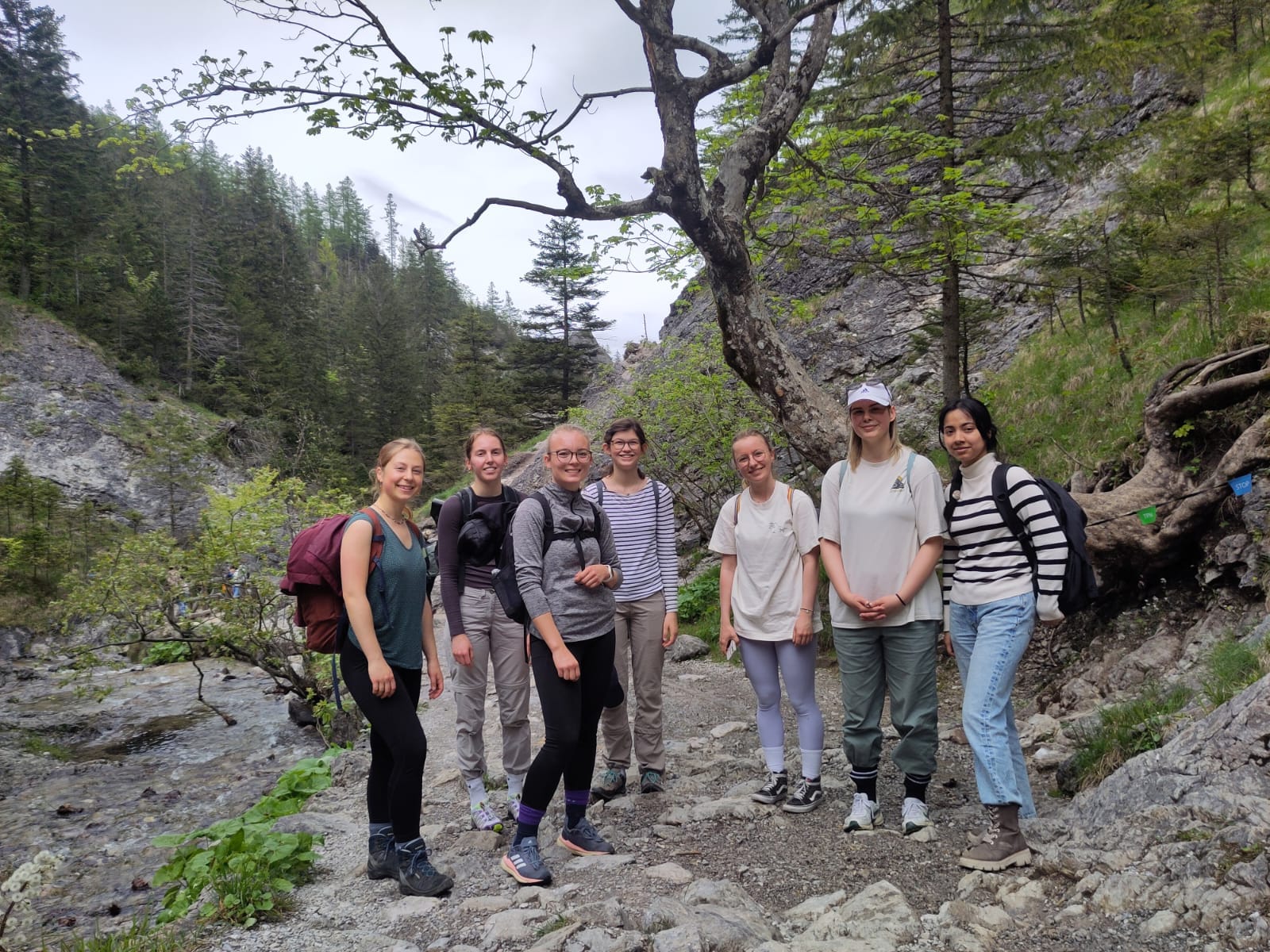
The following day, the students travelled to the Tatra Mountains, part of the southern Carpathians, for a hike near Zakopane. Along the trail and in the surrounding areas, they observed both the pressures of mass tourism and innovative approaches to sustainable visitation in this UNESCO biosphere reserve. In Zakopane, traditional shepherd huts have been adapted into restaurants, while local crafts and livestock have become tourist attractions. The students critically reflected on these developments. Furthermore, one student group, whose focus was sustainable consumption, had a chance to make contact with a local cheese museum, exploring the artisanal production of oscypek, a smoked sheep cheese protected by EU designation, as a case study for their project.
The next day, the group reconvened to reflect on what they had encountered, discussing how nature, culture, and economy co-shape one another in the Carpathians. Their reflections will lay the groundwork for developing their own transdisciplinary learning interventions that will promote sustainable development in the region. As one of the participants, Pia Marie Poll, noted, "The excursion to Krakow was a real springboard for our project, because it allowed us to meet in person instead of just virtually with a researcher from the area, who is now partnering with us."
This personal connection, made possible by the field trip, exemplifies the ProBioTIC project's core aim: to connect academic inquiry with lived experience and to build meaningful, cross-border partnerships in support of biodiversity conservation.




